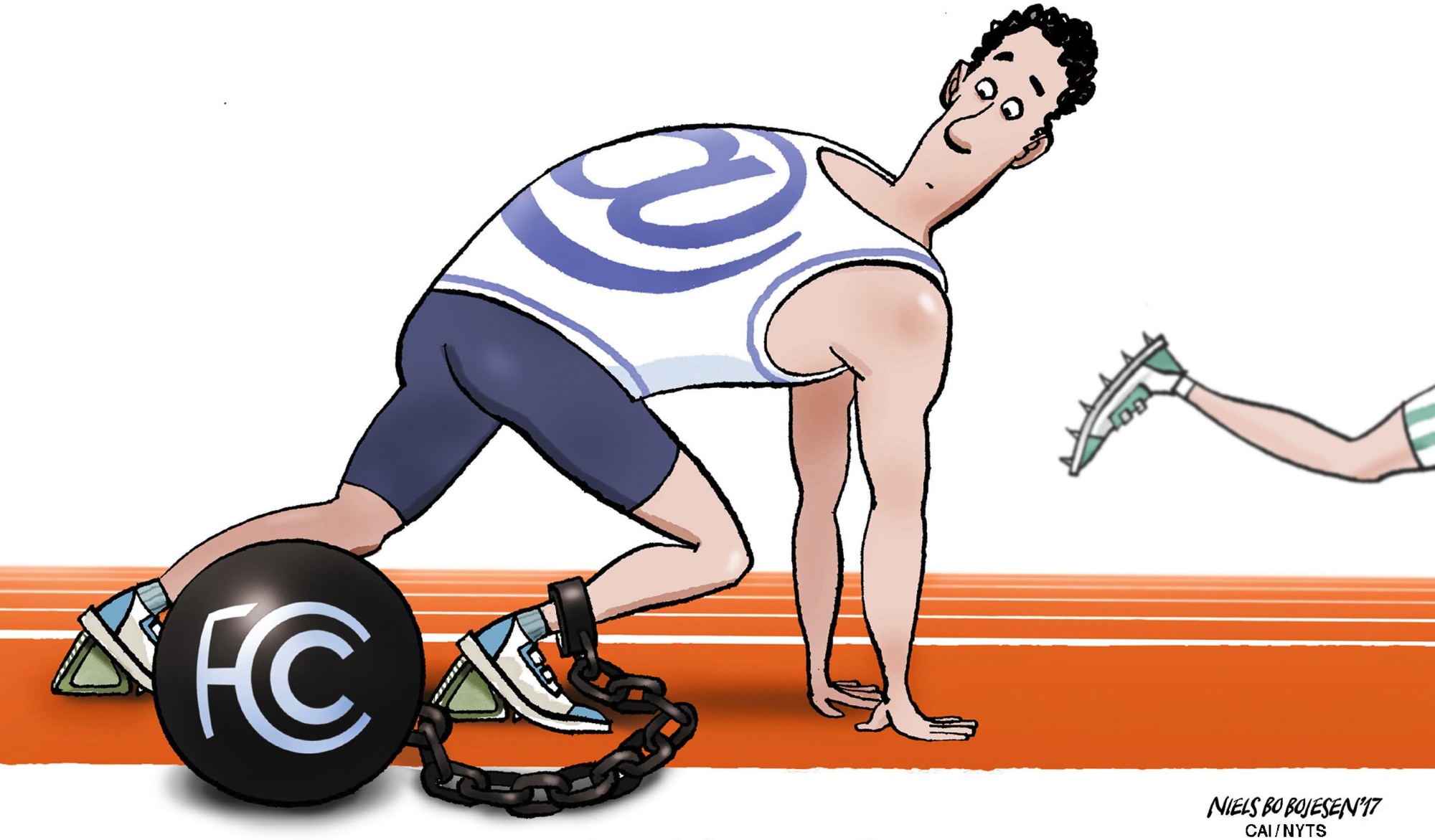Now that the U.S. Federal Communications Commission has killed net neutrality, what happens next — assuming appeals fail — depends on the economic incentives for internet service providers. These incentives make it unlikely that there will be significant changes to the user's experience.
In at least two ways, the internet in the United States wasn't completely neutral even while the 2015 regulation reigned supreme. Netflix, which accounts for about a third of peak time internet traffic in the U.S., still linked its network to ISPs in so-called peering arrangements. These exclusive "fast lanes" are also leveraged by Google and other big traffic generators.
The other way net neutrality fell short is owed to the ability of mobile internet providers to "zero rate" certain content services — that is, exclude their traffic from a mobile plan's data limits. Examples include all music streaming services in the case of T-Mobile's Music Freedom offer and video services under the same network's BingeOn plan.


















With your current subscription plan you can comment on stories. However, before writing your first comment, please create a display name in the Profile section of your subscriber account page.